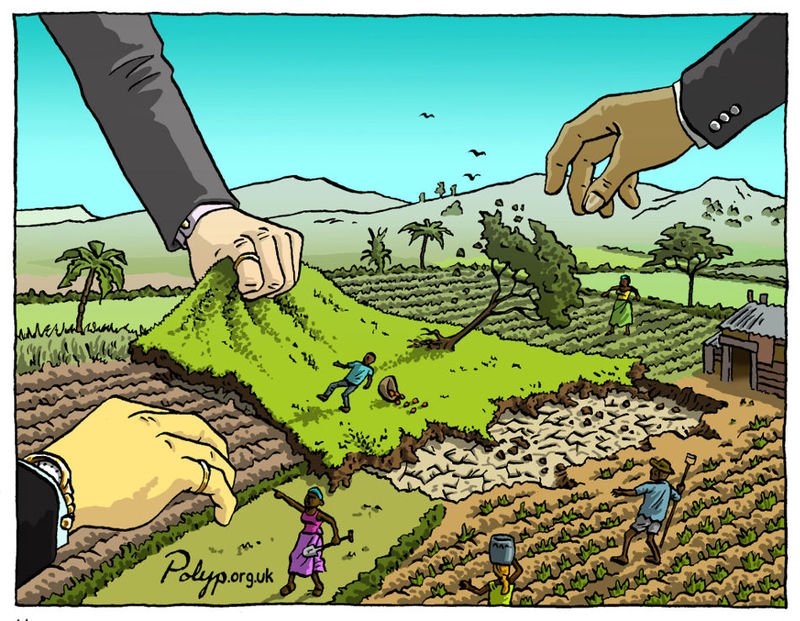Introduction: Land Use as an Environmental Challenge
The issue of land use has emerged as a prominent environmental concern in contemporary times, with far-reaching implications for ecosystems, biodiversity, and human well-being. Increasing pressures on land resources, driven by factors such as population growth, urbanization, and agricultural expansion, pose significant challenges for sustainable development and environmental conservation. Addressing these challenges requires a comprehensive understanding of the complex interplay between human activities and natural systems.
Competing Demands: Escalating Pressures on Land
Competition for land resources is intensifying globally, as diverse stakeholders vie for access to productive and ecologically valuable land. This competition is driven by a variety of factors, including the need for agricultural land to feed a growing population, the expansion of urban areas to accommodate urbanization trends, and the imperative of conserving land for biodiversity conservation and climate change mitigation efforts. The convergence of these competing demands is creating a ‘land crunch’ that threatens to exacerbate environmental degradation and resource scarcity.
Impact of Land Use Intensification: Ecological and Social Implications
The intensification of land use has significant ecological and social ramifications, with far-reaching consequences for ecosystems and communities. Intensive agricultural practices, such as monoculture farming and deforestation, can degrade soil health, reduce biodiversity, and contribute to habitat loss and fragmentation. Moreover, the conversion of natural habitats for urban development or industrial purposes can lead to displacement of indigenous communities, loss of cultural heritage, and social unrest.
Climate Change Nexus: Land Use and Mitigation Strategies
Climate change exacerbates the challenges associated with land use, creating additional pressures on natural systems and exacerbating environmental degradation. Rising temperatures, changing precipitation patterns, and extreme weather events pose threats to agricultural productivity, water resources, and ecosystem resilience. In response, there is a growing recognition of the role of land-based mitigation strategies, such as afforestation, reforestation, and sustainable land management practices, in mitigating climate change impacts and enhancing ecosystem resilience.
Policy Responses: Towards Sustainable Land Management
Addressing the emerging global crisis of land use requires concerted action at local, national, and international levels. Policy responses must prioritize sustainable land management practices that balance competing demands for land resources while safeguarding environmental integrity and promoting social equity. This includes measures to enhance land-use planning, protect natural habitats, promote agroecological farming practices, and strengthen land tenure rights for indigenous and local communities.
Technology and Innovation: Tools for Sustainable Land Management
Technology and innovation play a crucial role in advancing sustainable land management practices and addressing the challenges of land use. Remote sensing, geographic information systems (GIS), and satellite imagery provide valuable tools for monitoring land use changes, assessing ecosystem health, and informing decision-making processes. Additionally, advances in agricultural technology, such as precision farming and agroforestry techniques, offer promising avenues for improving productivity while minimizing environmental impacts.
Community Engagement: Empowering Local Stakeholders
Community engagement and participation are essential components of effective land management strategies, ensuring that local knowledge, perspectives, and priorities are integrated into decision-making processes. Empowering indigenous and local communities to manage and conserve land resources sustainably fosters ownership, accountability, and resilience. By promoting community-led initiatives and fostering collaboration between diverse stakeholders, inclusive approaches to land management can yield more equitable and sustainable outcomes.
Education and Awareness: Fostering a Culture of Conservation
Education and awareness-raising efforts are critical for fostering a culture of conservation and promoting sustainable land management practices. Building public awareness about the importance of land conservation, biodiversity protection, and sustainable agriculture helps garner support for policy interventions and behavioral changes. Educational initiatives aimed at schools, communities, and decision-makers can cultivate a sense of environmental stewardship and inspire collective action to address the global crisis of land use.
Conclusion: A Call to Action for Sustainable Land Use
In conclusion, the emerging global crisis of land use underscores the urgent need for proactive and concerted action to address the complex challenges facing our planet. By prioritizing sustainable land management practices, fostering innovation and technology adoption, engaging local communities, and raising awareness about the importance of conservation, we can mitigate the adverse impacts of land use intensification and build a more resilient and equitable future for generations to come.
































